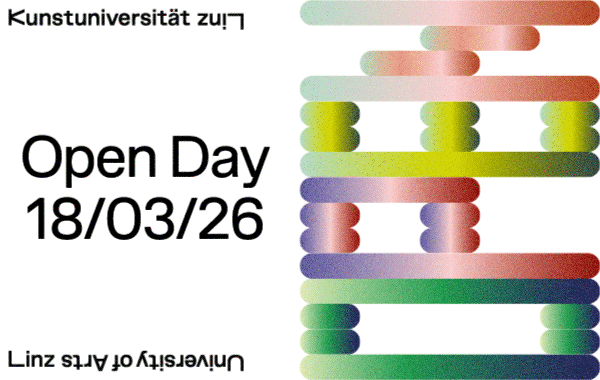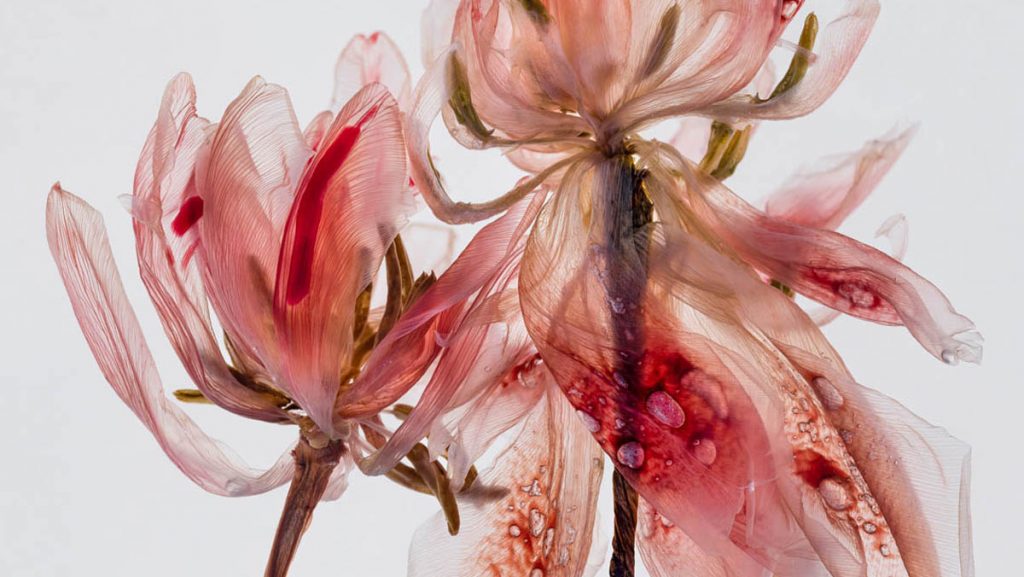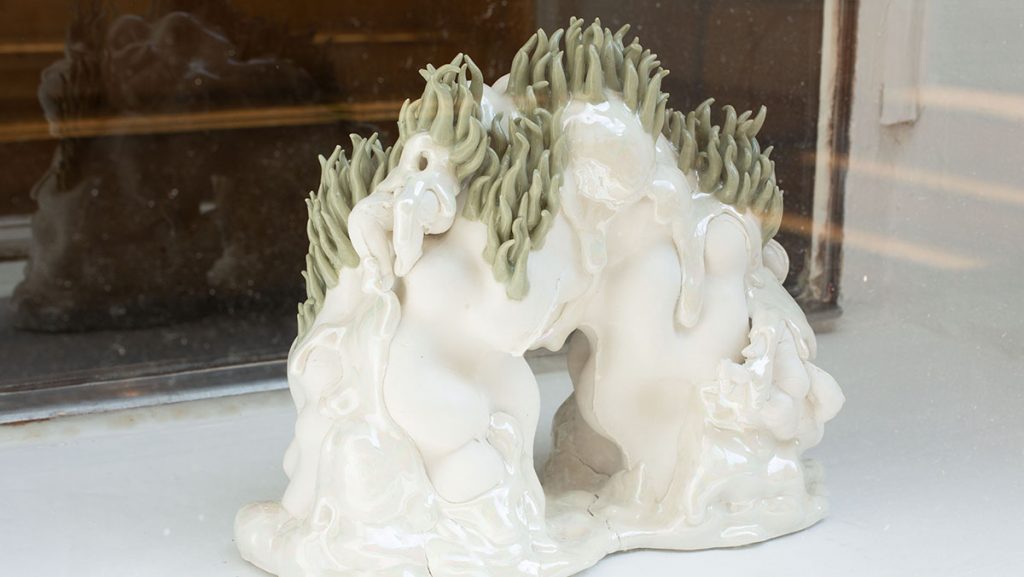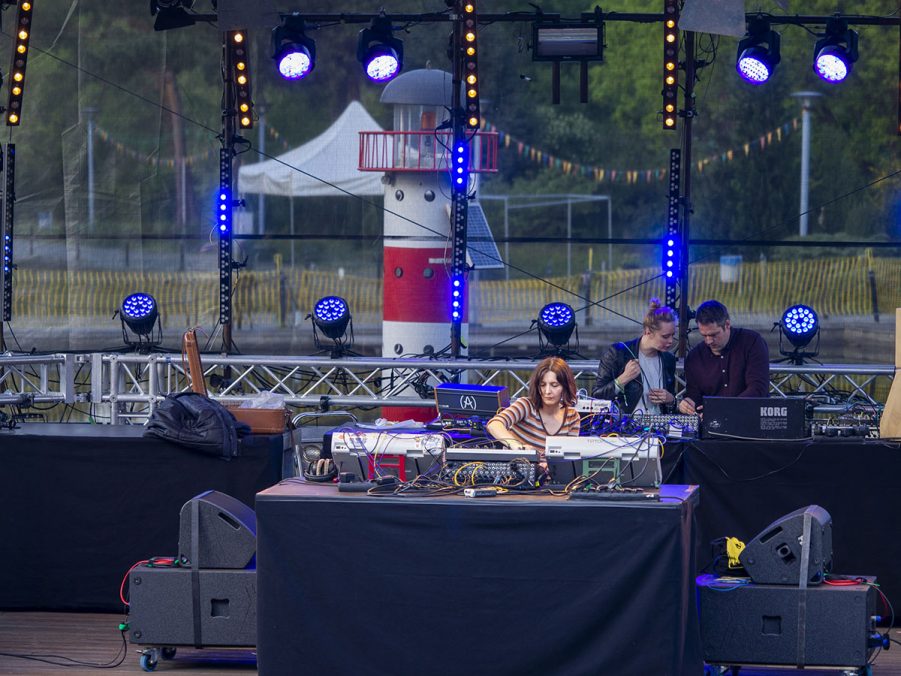
To get to their place of desire, usually in Halle 5.1, aficionados had to transit long hallways, passing trombones and violins and home-organs and pianos and merchants, and wholesalers in business garments to finally meet Herr Schneider in a lab coat, unorthodox and very relaxed in his universe. Happenings and parallel programs during a trade show are not typical then. But Andreas Schneider, the patron of synthesizers, and owner of the legendary SchneidersLaden, always keen to create an unforgettable experience, gives titles to each edition. In his words: „Every single Superbooth should be burned into memory as a unique event „
In 2007 he organizes his evening Sonderprogramm at the unforgettable location „Atelier Frankfurt“ introducing the culture of happenings and performances. Even if these Frankfurt years are unforgettable, Schneider has something that circulates in his head: „We can do without all this, we have to leave Frankfurt“. These products must be shown in a different architecture, in a unique atmosphere. So they leave the city for the capital of techno and electronic music. Their first Berlin edition occurs in the former GDR Funkhaus with its impressive architecture and acoustics, in the district of Treptow-Köpenick. Then the fair migrates to Freizeit- und Erholungszentrum*- also a place with a rich heritage. For Les Nouveaux Riches we talked with the mastermind Andreas Schneider and the fair executive director Andre Kaufmann. For Erka Shalari, this interview was an interesting way of unearthing a different type of fair, and for Cornelius Wildner a trip down memory lane. *Formerly Ernst Thälmann Palace, nowadays known as FEZ Berlin
Erka & Cornelius : Hello Berlin! Thank you for taking the time, it feels so good to have at least a virtual trip to Berlin. For a start, can you tell us about how you got to know each other, and then decided to become business partners?
Andreas Schneider: Hello Vienna! I would like to let Andre first.
Andre Kaufmann: Hello Vienna! I have been thinking about this before, as I had the feeling that we would get a question like this (smiles). To keep the story short: before Superbooth, I had a job in a totally different business. Then I quit this job and started looking for something else. During those years of transition and re-orientation, I also began to immerse myself in the modular world, and of course, I knew the SchneidersLaden in Berlin. Everyone interested in this, is naming this place. I went there and noticed that Andreas and the team at the SchneidersLaden were preparing the Superbooth trade show, so I send him an email, expressing my wish to be part of it and he said: „Yes why not, come around and we can talk“. I did not mind at all what my task would be, I just knew I wanted to spend time with these people, and then in 2016 I was welcomed in the first edition of Superbooth in Berlin which felt great, everything was beyond my expectations. Then after this edition, we agreed that we could do more together and soon I became part of the core team of Superbooth. So lucky to be part of it, together with Andreas, Thomas, and Alex.
Andreas Schneider: When we moved the fair to Berlin, we were searching and acquiring people who could help, who could put energy into organizing this trade show. We did not have much experience with managing special venues. Andre was one of these helpers. In the first year he had the massive task of distributing the loudspeakers to the exhibitors, that year we had more than 100. He had a super hand on mentality, taking care of almost everything, and this struck my mind. Then Andre told me a bit of his story, his wish for a new direction in life, and his love for re-orientation into this field. A day we took him to our board meeting, and he expressed the wish to buy a share of the company, which turned out to be a great decision.
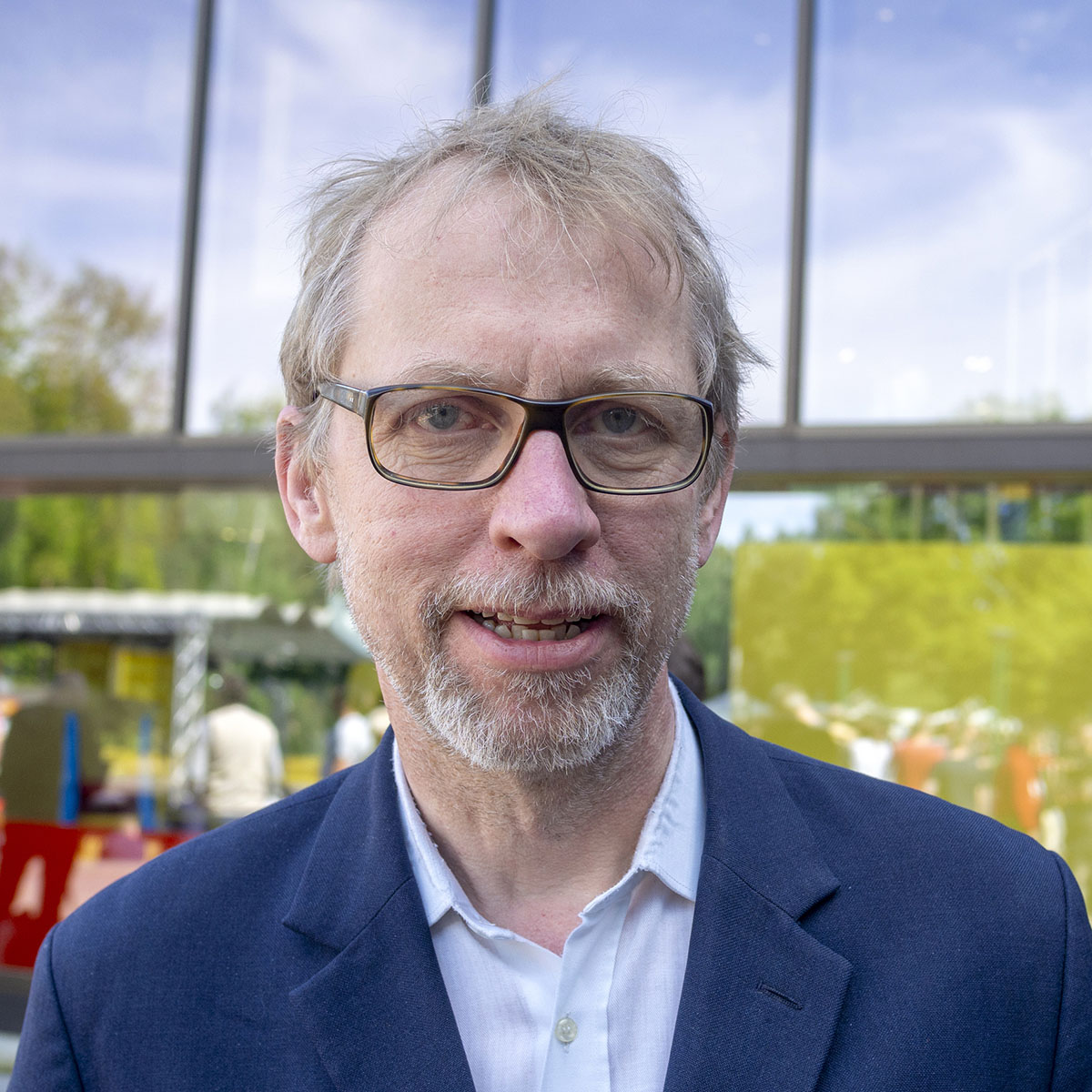
Andreas Schneider 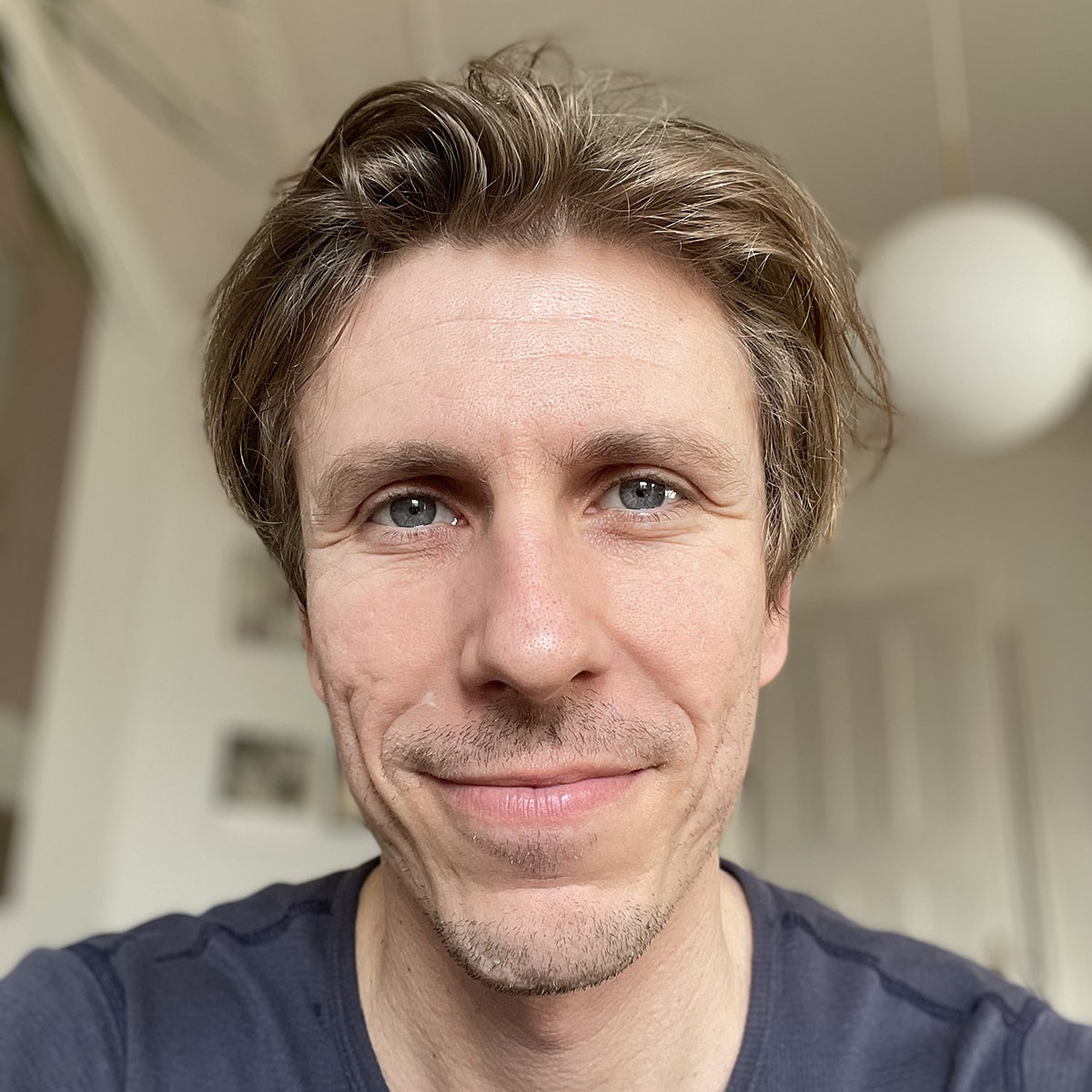
Andre Kaufmann
CW: Why did you choose to abandon the Frankfurt Music Fair?
ASCH: In the beginning, we went to the Musikmesse because that was the place to be and meet people potentially interested in music. Year after year, we started to build our own audience. In the first year, around 70 people, then it grew to around 300 people who visited Musikmesse just because of us. They came every day of the show and were hanging out exclusively at our synthesizer manufacturers’ booths, or in the worst case, they would visit one or two other stands on the Musikmesse (smiling).
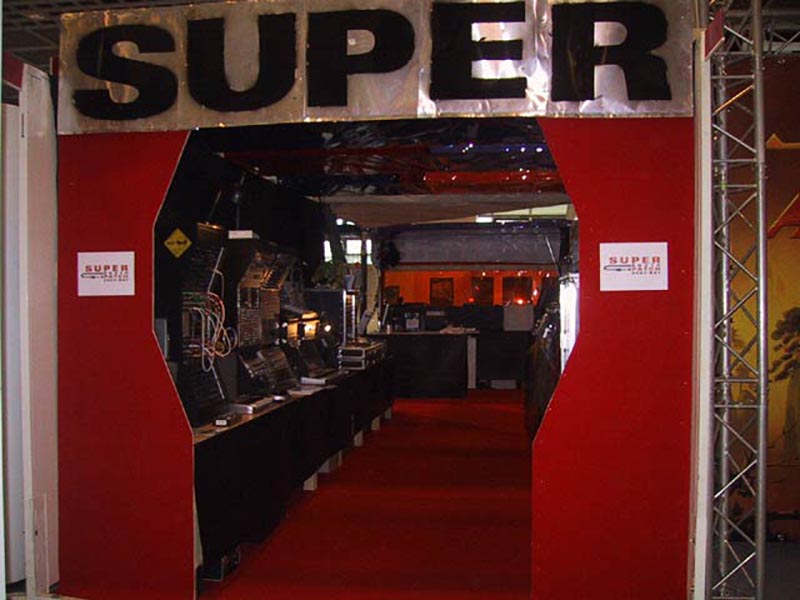
Superbooth in Frankfurter Musikmesse. Courtesy of Superbooth. 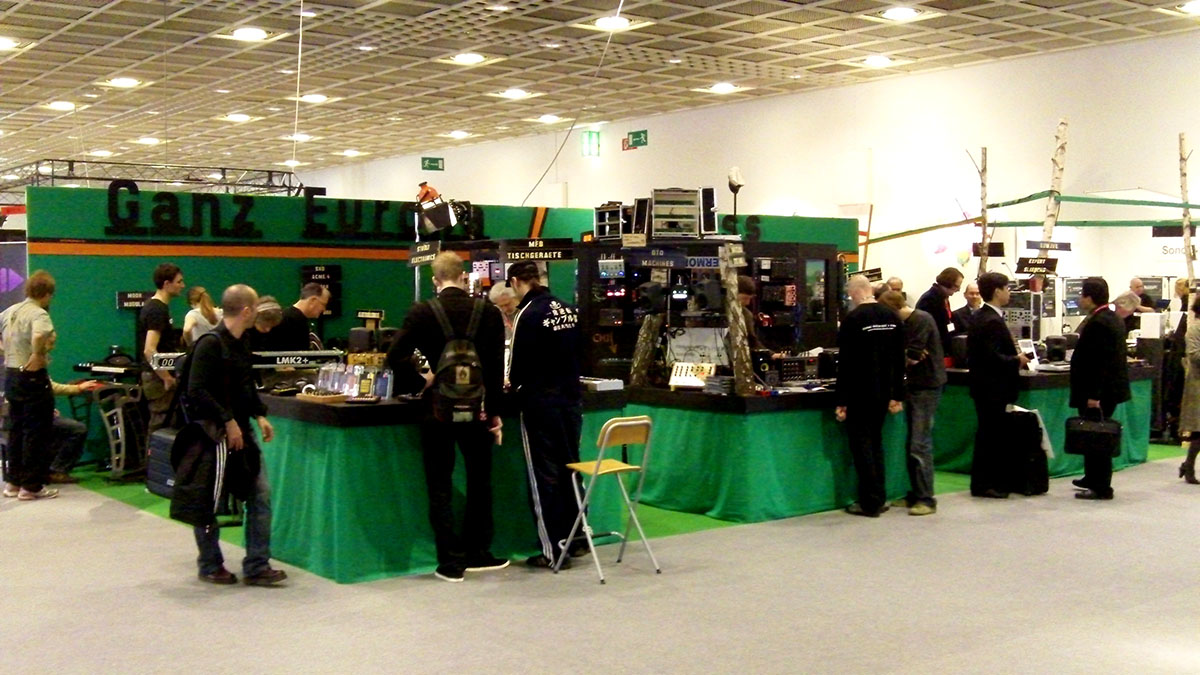
Superbooth in Frankfurter Musikmesse. Courtesy of Superbooth.
That’s when I realized that we might need to split from the general fair, move somewhere else and maybe do things differently.
Sometimes, I thought that for changing things it would be sufficient if we move our stands outside on this fairground, other times I had the idea that we could organize it somewhere else in Frankfurt and keep the same days of the general music fair, but then decided against all these considerations and realized that we didn’t need all that.
Frankfurt was not charming, was super expensive, had an ugly train station at the time, expensive hotels that charged double what they offered. I thought: If we stay here, people who want to visit us will end up at the same Frankfurt train station again…During those years, I already kept looking for locations in Berlin. I had written emails to the Funkhaus a few times because I thought the location was incredibly suitable for Superbooth. Finally, I met the new owner of the Funkhaus and could get him to Frankfurt to see what we are doing there, to understand our vision. He visited us at our booth, expressed that he wanted us in Berlin at his location, and not just us from the Superbooth, but he wanted to bring the whole Frankfurt Music Fair to the Funkhaus – that was his big vision (smiling). We then agreed to go for this location, but only us from Superbooth. Before I get to that, I want to introduce someone super important to this project – Thomas. I have a long history with him, he and I used to play in a band when I was 30 or younger, but then I left Bremen and went to Berlin. Thomas stayed there, but one day he sold all his guitars and said: „I don’t want to make music anymore, I want to be successful and have a steady income“. He then did commercial studies, made a single application to the place he wanted to work, and got this job. Since then he has been taking care only of finances and stopped doing things with music. His only music-related activity was to visit me at the Superbooth in Frankfurt. He would say: „Hey Schneider, give me a ticket“, he will smoke a joint, have a drink, go to all these booths, playing and comparing guitars.
Sometimes he would try to make us start a new band again, like in the early days. But I was already in another movie, I was in Berlin with my techno and electronic music company, and I was happy to have left behind all those times with guitars.
He was also there when the guy from Funkhaus first approached us, and then I said to Thomas: “Hey, I don’t want to start a new band with you, I don’t have time to make music, but we could start a new company together“ … that’s what happened.
CW: The architecture of the Funkhaus, its features, and the acoustics are all stunning. Why did you then decide to change locations and move to the FEZ, with its completely different set of features: playgrounds, green areas, woods, Parkeisenbahn?
ASCH: The move from the Funkhaus to the FEZ happened because of several reasons, one of it was that tenants and studio owners who had taken care of this place for decades were kicked out. They had protected the heritage over the years, down to the very small elements, such as the speakers or the original wiring, and wanted this history to continue.
The building had an amazing wiring system, with super clever connections that linked the studios together. When I saw the new owner ignoring the cultural act of all those people, I said: „I can’t support and look at this anymore.
So we started to check out different locations in Berlin, including all the official places for fairs and exhibitions, we visited prestigious and historical buildings like the Haus des Lehrers on Alexanderplatz, Kino International, or the Cafe Moskau on Karl-Marx-Alle, we also saw conventional places like Messe Berlin, but then FEZ was Andre’s favorite, and we all agreed that that was it. Andre probably has a few words to add because he has a personal history with this place. I have to say that this place is simply perfect. AK: As you’ve been there, you know how special the building is (referring to Cornelius). When you are in the FEZ for the first time, it feels a bit like a maze. The outdoor area is excellent, with quite a large park, which I would even call a forest, it gives a special feeling when you arrive. The decision for the FEZ was also made because one needs spaces with different functions when organizing a fair: spaces for exhibitors, spaces for festival programs, workshops, stages for concerts, or small lectures. It is not so easy to find venues with such a set of features in Berlin. There are many stylish places where everything is new, clean, super industrial, but we did not see a lot of soul in all these buildings.
Today, we are very happy that FEZ is the home of Superbooth.
The personal aspect Andreas mentioned, was that when growing up in the GDR, I was a member of the Young Pioneers that had the philosophy that kids should be hanging out together in a group. FEZ was also knows as Pioneer Palace. We had blue scarfs, then red ones, we sang, went on excursions together, but this membership lasted only two months because then the wall came down. My partner likes to tell sometimes that I was the very last Pioneer in the GDR. At least I was one of the last years generation.
ESH: For participation in an art fair, galleries are required to submit applications. Is there something similar for SB, and if so, how does this selection process work?
ASCH: We do not give out forms, but we take care that the participation remains heterogeneous. This show’s vision is not to accept just big companies and make them bigger than they are but to also have a creative process with small companies.
CW: To stay on the subject of the selection process. After all, the Superbooth is not just a product presentation, but also an inspiring event with up to 30 concerts and performances per day. How are the artists selected?
ASCH: In the first year, it was friends performing. We did not have any money, could not afford anything. When we announced our first edition in Berlin Funkhaus and planned the slots for performances and concerts, many friends and clients of Schenidersladen were willing to play there.
I was asking if they could play a gig there, and they said: „I will. I usually take millions for a performance, but for you Schneider, I will do it.
Artists were inquiring about playing there also in the second year, and they still did not care about the money, they just felt good in these environments. From our side, we offered all the necessary help for installing their set up, providing drinks and food. In the last year, we have managed to set fees, and now have a curator who is taking care of bringing interesting people to SB. AK: I wanted to come back to some of the earlier days on the first edition. I remember us sitting together and thinking: Oh, this is a cool guy/girl playing this and that, let’s ask. Some of the performers also came out of the staff from SchneidersLaden, people we like and appreciate what they do musically. Now it is Mareen, who is responsible for the selection and curation of the stages. She is involved in electronic music as a DJ, is also producing by herself and has a lot of contacts to interesting artists. Mostly, the program is put together collectively and we prefer to work with people, who have a personal connection to one or all of us in some way.
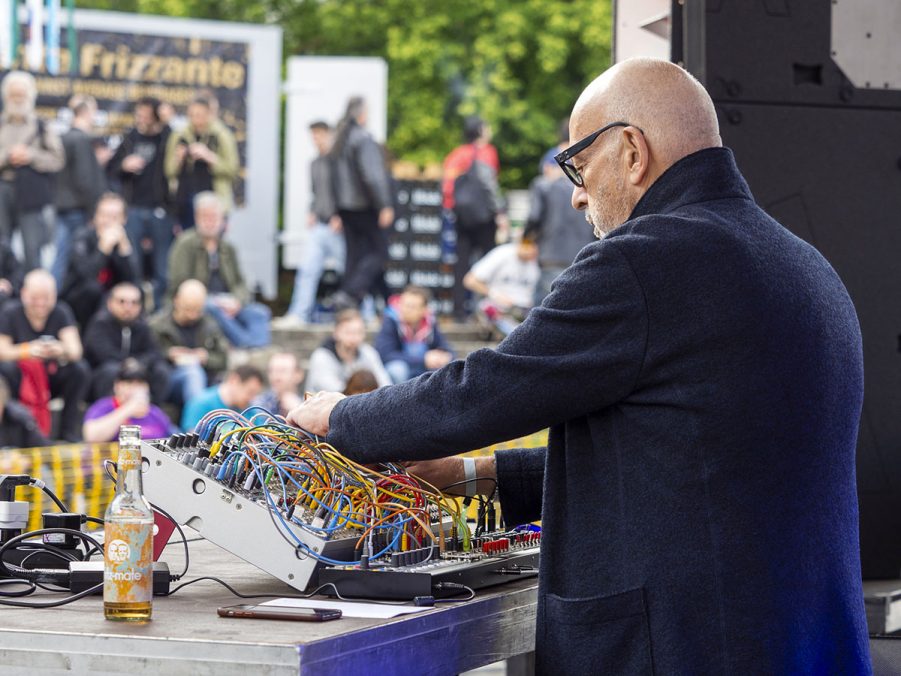
Various moments in Superbooth. Artists performing & events. Photo courtesy Superbooth & Angela Kröll 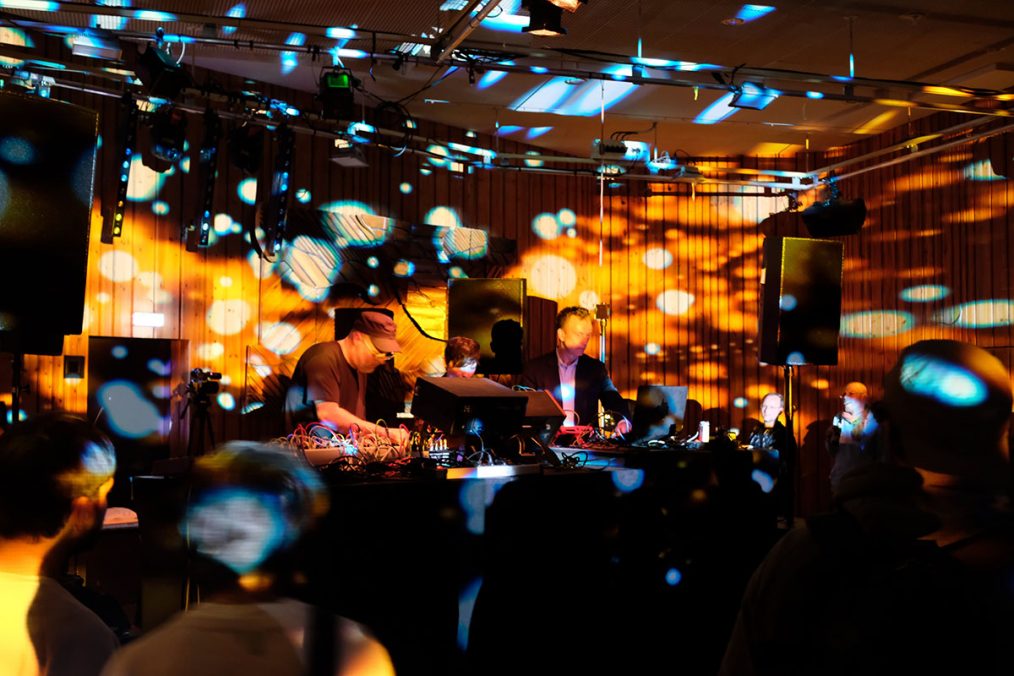
Various moments in Superbooth. Artists performing & events. Photo courtesy Superbooth & Angela Kröll 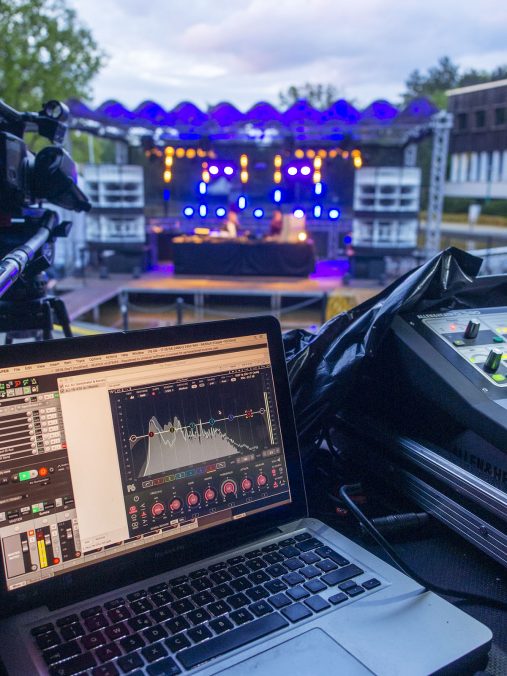
Various moments in Superbooth. Artists performing & events. Photo courtesy Superbooth & Angela Kröll 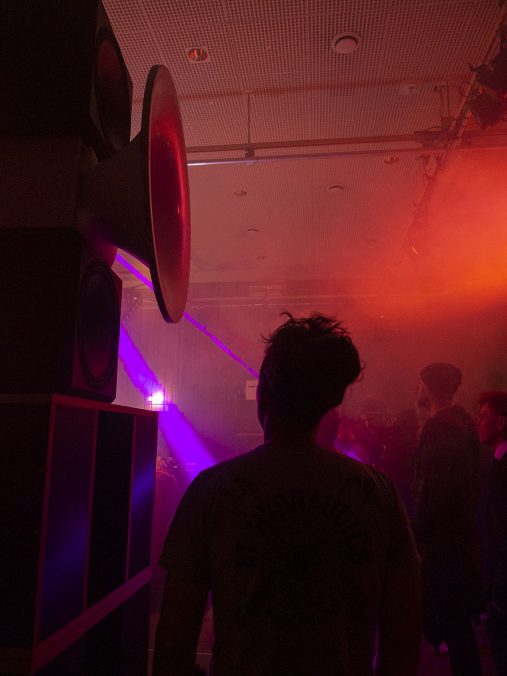
Various moments in Superbooth. Artists performing & events. Photo courtesy Superbooth & Angela Kröll 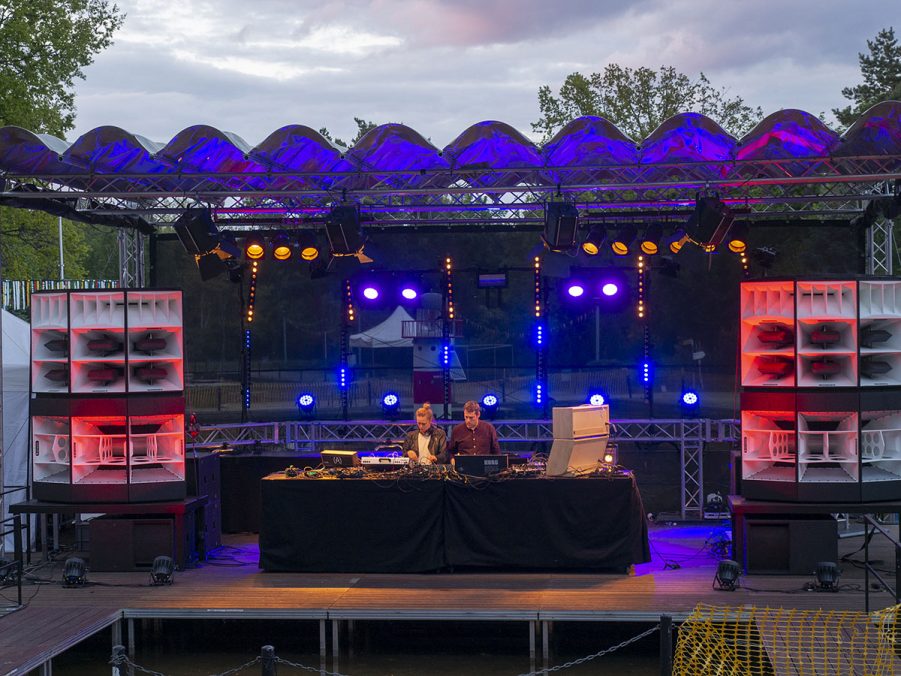
Various moments in Superbooth. Artists performing & events. Photo courtesy Superbooth & Angela Kröll
ESH: You also conduct workshops there, how are they received?
ASCH: The manufacturers are very creative. They have their heads full of ideas and want to release them, and when we say that we organize workshops, they answer directly: “Hey, can we have three?“. Most of the companies showcase their products first at Superbooth, which leads to the urge to explain them in workshops. At the fair, we feature not only hardware but also a lot of software manufacturers. So, different types of workshops and DIY formats emerge. It can be said that there is something for everyone.



